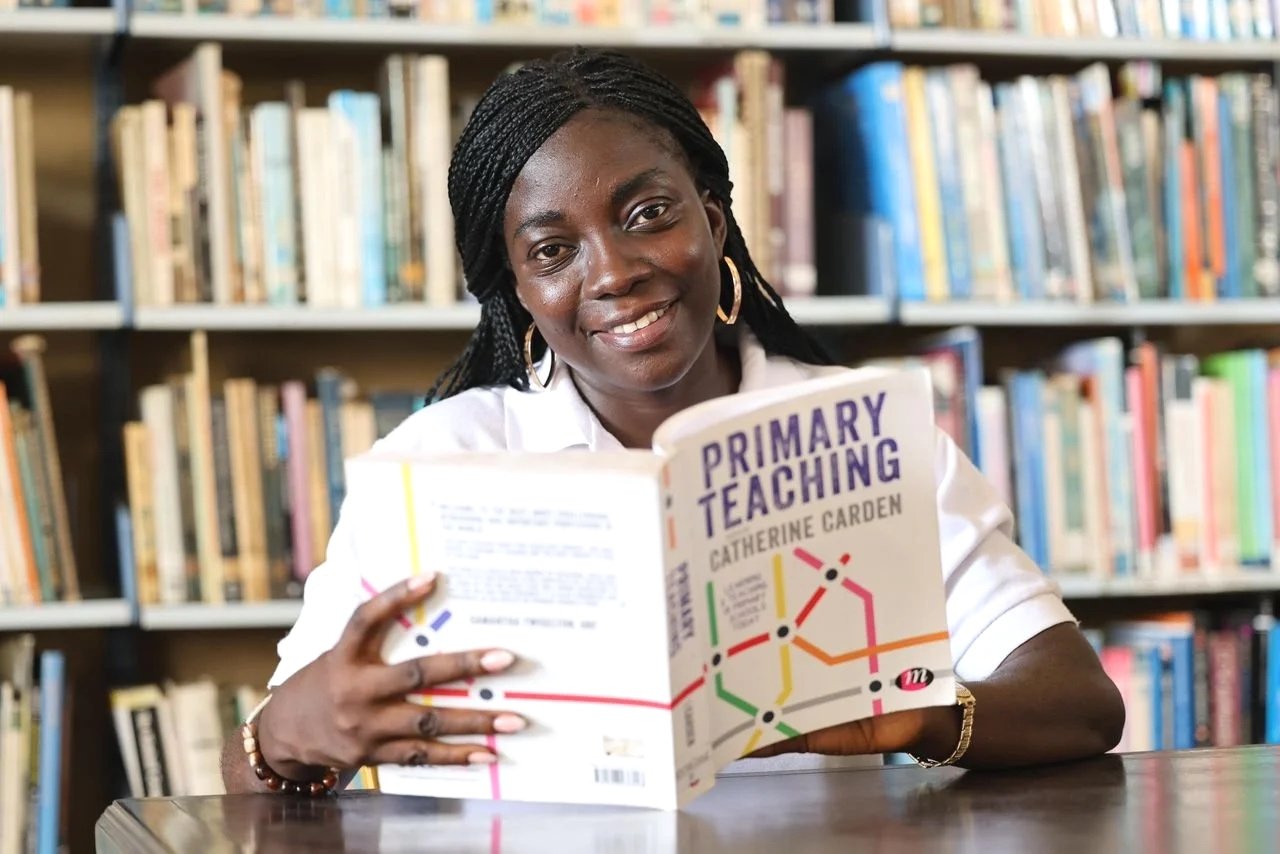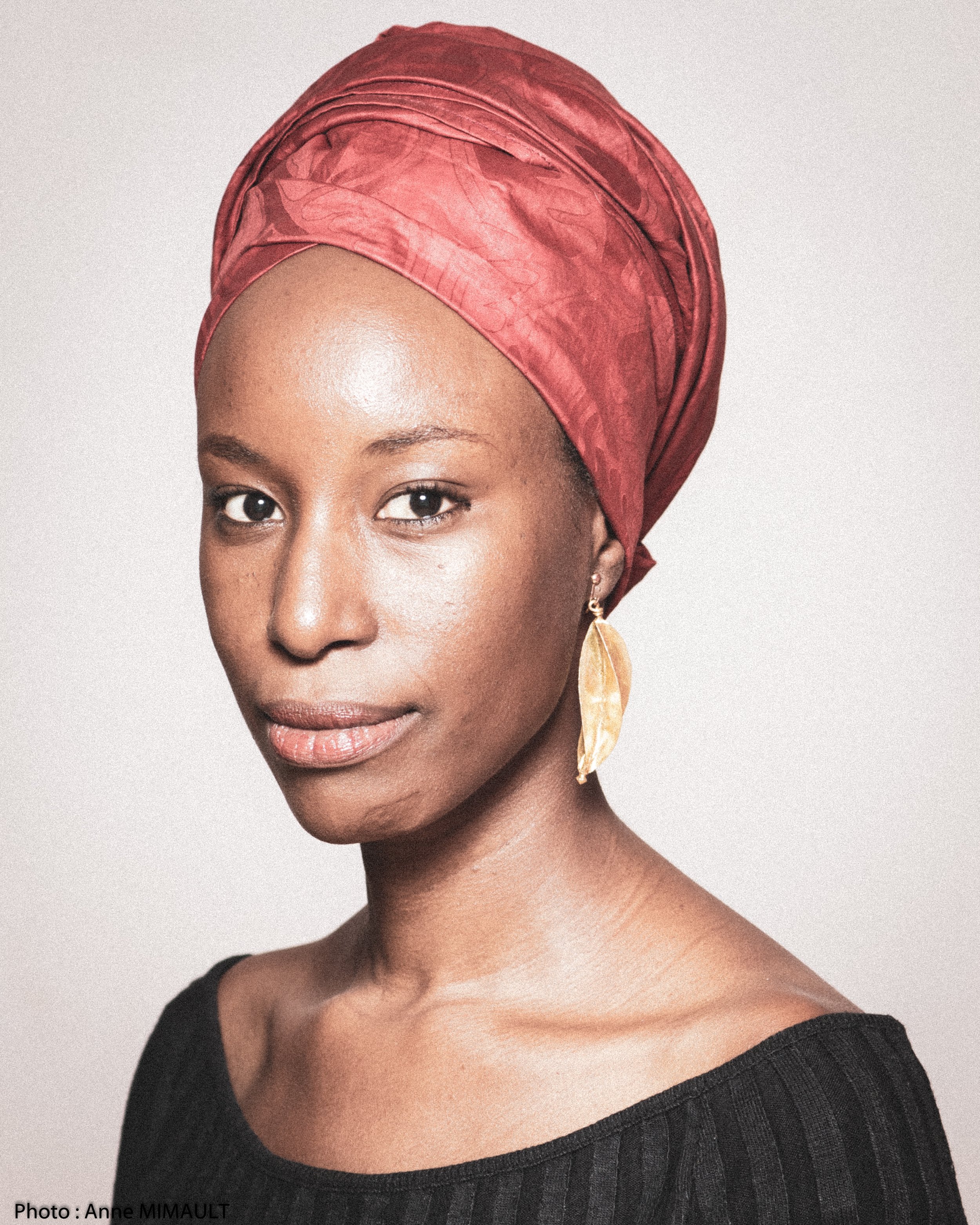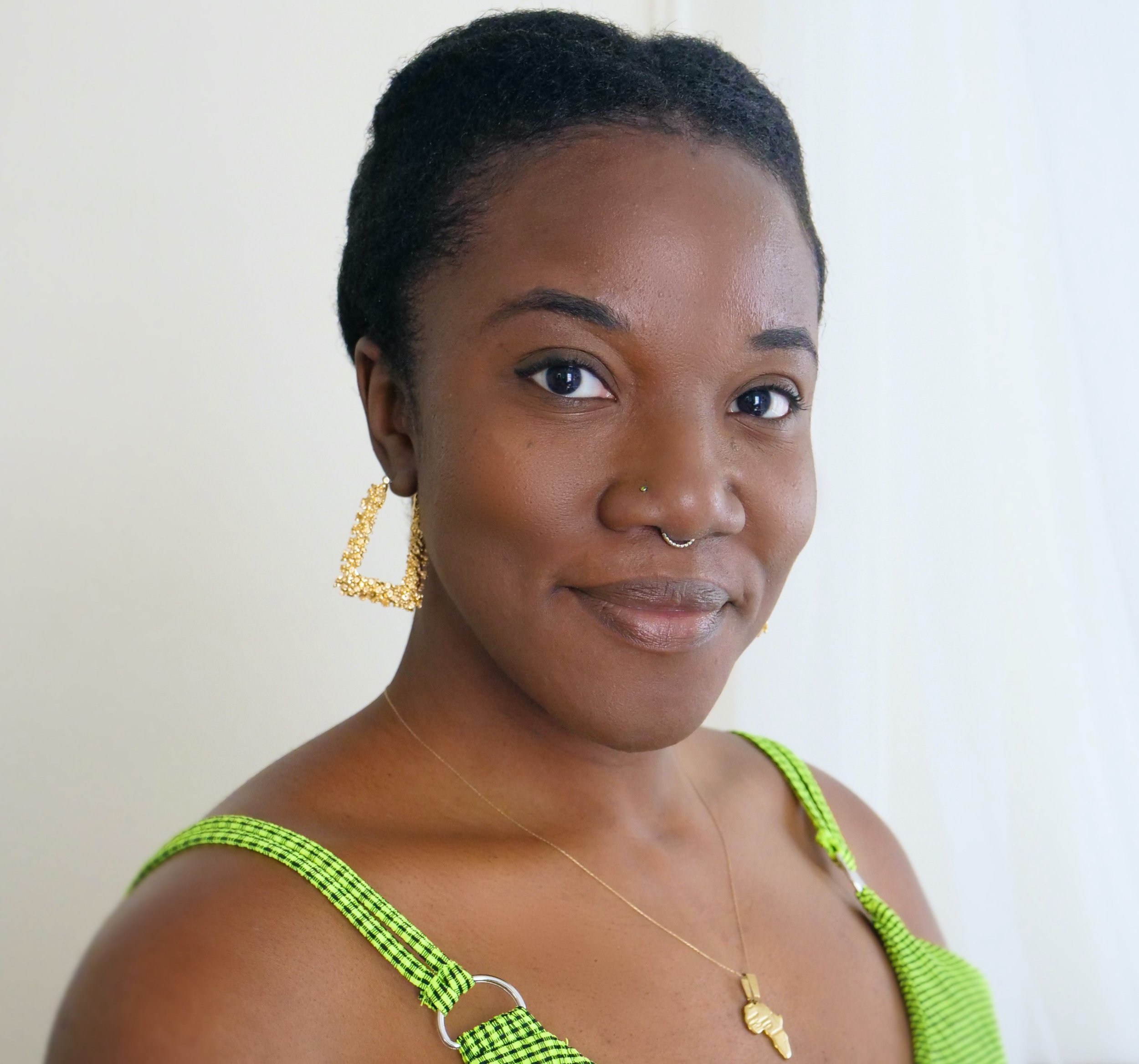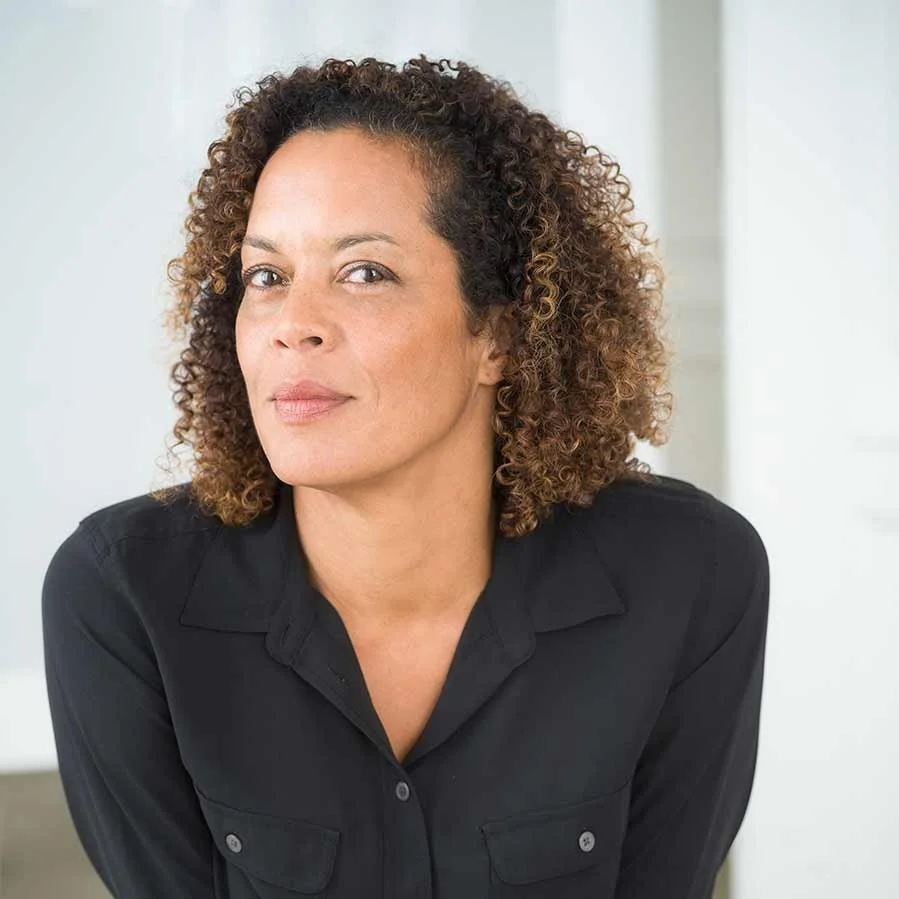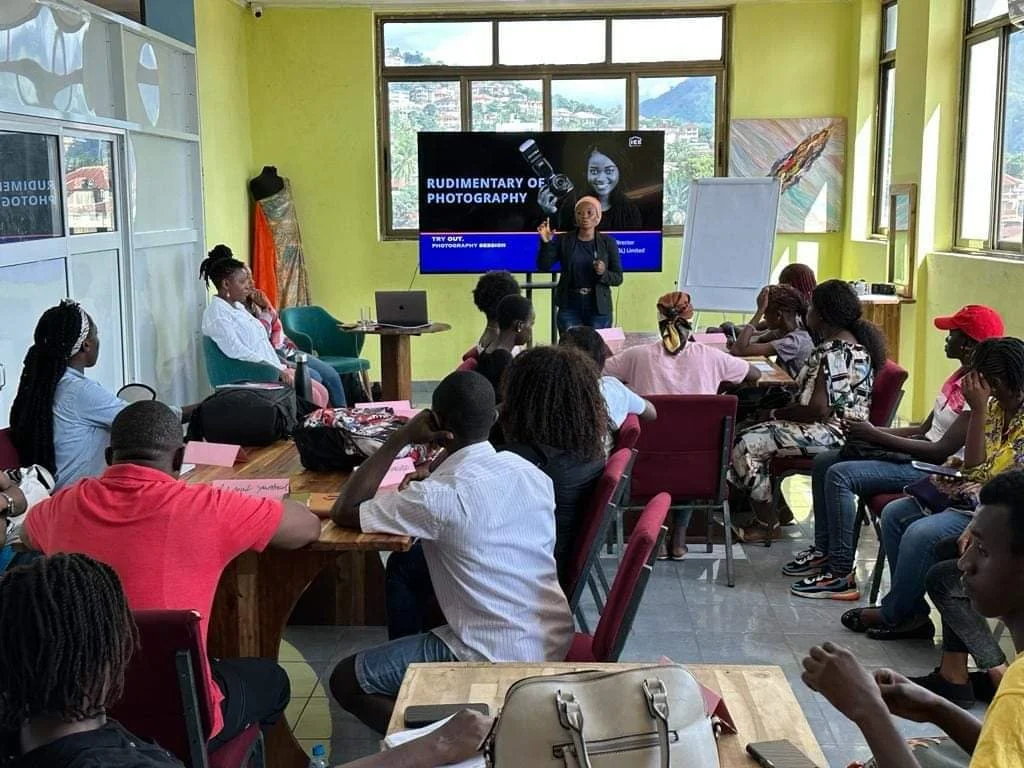Yema Lucilda Hunter on Documenting Sierra Leonean Lives through Fiction.
Yema Lucilda Hunter is a celebrated Sierra Leonean novelist, biographer, and librarian. Her work includes Road to Freedom, Bittersweet, Her name was Aina, and a biography: An African Treasure - in Search of Gladys Casely-Hayford. Lucilda Hunter was born and raised in Freetown, Sierra Leone. She attended the Annie Walsh Memorial School and studied in the United Kingdom, qualifying as a librarian. As a librarian, she worked for the the Ministry of Health and Sanitation in Sierra Leone, WHO, and was made a Fellow of the British Library Association, since renamed The Chartered Institute of Library and Information Professionals. As a writer, Yema Lucilda Hunter illustrates everyday Sierra Leonean life into rich prose, through her keen eye as a documentarian.
In this email interview with Poda-Poda Stories, Hunter shares the inspiration behind her writing.
Poda-Poda: Thank you for joining the Poda-Poda. Tell us about your journey as a writer and librarian? Did you always want to be a writer or was it something you fell into?
Yema Hunter (YH): I hesitate to call myself a writer as I don’t often feel compelled to put fingers to a keyboard, or pen to paper, though I always enjoyed and got good marks at school for what used to be called ‘Composition’. However, I AM the author of six novels and a work of non-fiction. My career as a professional librarian is what started it. While browsing the shelves of the Africana Collection at the National Library in Sierra Leone, I came across an old book in which a 19th Century visitor to Freetown mentioned a brief encounter with one of the black Nova Scotian settlers who arrived in the country in 1792. I learned some history of which I had been totally unaware and found it so fascinating that I felt other Sierra Leoneans, especially citizens of Freetown, might find it equally interesting, especially if it was conveyed in a non-scholarly manner. That was how I came to write my first novel, Road to Freedom, published in 1982. A new edition has recently been issued with the title Seeking Freedom.
Poda-Poda: What is the inspiration for writing your novels, particularly BitterSweet and Redemption Song?
YH: Sierra Leone, Freetown in particular, has inspired all my novels. The story line for Bittersweet occurred to me following the sudden death by road accident of a young cousin. I imagined the plight of a young wife and mother unexpectedly widowed, and the story unfolded from there. Redemption Song came twenty-five years later and was inspired by the civil war in Sierra Leone. Though the country is never mentioned and the course of events is ahistorical, anyone who knows Sierra Leone and experienced the war has no difficulty discovering the story’s setting.
Poda-Poda: In writing your novels, do you often find that you put a certain lens on, or a unique perspective? If so, what are they? What are some of the issues you want to highlight when writing?
YH: I write novels about Sierra Leoneans for Sierra Leoneans, thought it is gratifying when non-Sierra Leoneans enjoy them as well. My main characters are usually, Krios, descendants of the Liberated Africans who were settled in the Freetown area early in the 19th century. Of course, over the years, their interactions with members of the indigenous populations has become more frequent, hence no novel is only about Krios. My intention is to write stories about ordinary Sierra Leoneans living ordinary lives.
Poda-Poda: What is your writing process like? Do you have a certain pattern or routine?
YH: I am fairly disorganised . I have an idea for a story and once my first paragraph is clear in my mind, I plunge straight in, seeking necessary information and fleshing out the main characters as I go along. Progress of the story tends to be organic as I never know exactly what is going to happen until it does. I edit chapter by chapter and do a complete revision when the work is complete.
Poda-Poda: Poda-Poda Stories highlights authors from Sierra Leone, and it has often been difficult to discover the work of Sierra Leonean female writers pre the 21st century. You’ve also written a biography: An African Treasure, in Search of Gladys Casely-Hayford, 1904 – 1950, about Gladys Casely-Hayford, whose work isn’t quite well known, especially in Sierra Leone. How important is it to know about Gladys, and also to discover Sierra Leonean female authors during her time?
YH: Probably, there were not many published Sierra Leonean female writers up till the mid to late 20th Century. Adelaide Casely-Hayford and her daughter, Gladys are the only two pre-independence female writers I can think of. After independence, female writers of textbooks and supplementary readers for primary schools began to appear. Talabie Aisie Lucan and Melvine Stuart come to mind. I am not aware of any bibliography of Sierra Leonean female writers in the country, but I believe another Sierra Leone-born librarian, Wilma Jones, has produced one. However, she lives and works in the US and I am not aware that it has been formally published or is available in Sierra Leone. The problem is that Sierra Leone is not a nation of readers. Unless a literary work has been used as a school textbook, eg, my novel Road to Freedom, it remains largely unknown. I have the impression that most Sierra Leoneans acquainted with Road to Freedom, are not even aware that I have written other novels.
Poda-Poda: You’ve also had quite an illustrious career as a librarian. In your work, has accessing information become easier and what is the future of digital archiving in Africa especially?
YH: I retired more than twenty years ago, but even then, thanks to computer technology, accessing information had become far easier than it was at the start of my career. It has become easier still. Anybody can Google and search the internet in other ways. However, the skills of librarians and other information professionals are still needed for assessing the relevance and accuracy of information obtained. Digital archiving is a boon to developing countries where document preservation and storage has often been most unsatisfactory. I have been delighted to learn that archival digitization projects are being planned or are actually on course in Sierra Leone.
Poda-Poda: We always ask writers this question. How has writing saved your life?
YH: I would not say that, but it has certainly enriched my life, though sadly, not financially. I have always been an avid reader but writing my own books has forced me to widen the scope of my reading as works in progress often require considerable research.

